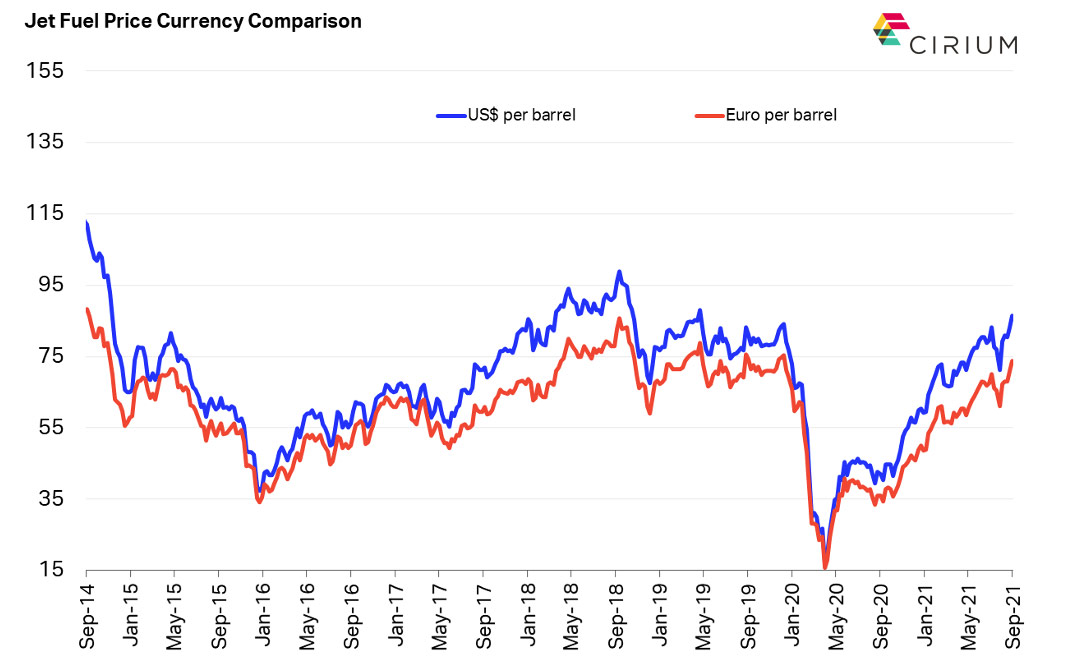Though far from the price peaks of the last 20-years, the cost of jet fuel has been on the rise since the beginning of the pandemic. As of October 5th, the price of Jet A-1 is averaging about $87 per barrel.
Aviation fuel generally makes up 22-24% of the operating cost of running an airline. Small variations in demand, disruption to delivery or even slow responses to industry dynamics can cost fuel providers billions of dollars and have a significantly negative impact on an airline’s operating costs.

For maximum efficiency, it’s critical to have as little friction in the market as possible throughout the entire fuel supply chain. The more information fuel producers, traders and distributors have about airline needs, the better they can manage the global supply and distribution network. More information makes it easier to set mutually beneficial prices and help the airlines avoid unexpected costs or disruptions.
Using the same forecasting and modeling tools the airlines use enable producers, distributors and brokers the ability to assist airlines in determining future fuel needs. Shifts in demand are recognized sooner so distributors can prepare for changes to delivery schedules and shifts in equipment.
Key information sets for planning, benchmarking, and opportunity spotting
Cirium’s air operational data enables fuel providers to investigate and identify conditions that impact fuel usage. These include ‘in-air’ delays which are more frequent with heavy traffic on runways and unscheduled aircraft operating.
Everyday occurrences such as weather delays, turnaround times, time on runway can be tracked at airport level. This data can support an understanding of fuel efficiency and demand trends by airport, airline or region.
Fleet data – monitor equipment and aircraft status for each airline. Keep track of what is flying, what is grounded and where aircraft are located and likely to need refueling.
Schedules data – track the active schedule of every airline. Changes in the schedule such as canceled or rerouted flights, new routes or even flight patterns can impact demand at a location or even at the global level.
Airline industry news – Cirium Dashboard provides a complete mix of airline profile data and industry news. This helps keep the supply chain fully informed, not just on issues that could impact fuel demand, but other topics where knowledge makes doing business easier.
Explore Cirium Data
Request a demo or contact our data and fuel industry specialists about creating a friction-free information program.
Sign up to get new travel and aviation reports, industry insights, event invitations and relevant product and service updates.
























































